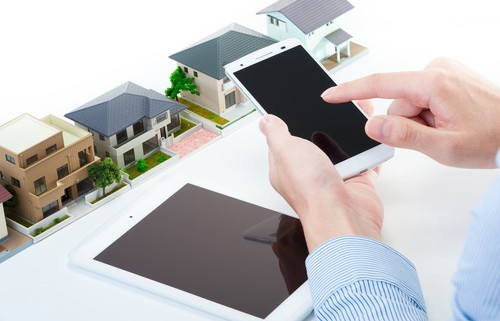Understanding Your Home’s Worth
You have probably done it at some point. Walking around the neighborhood or driving to work, have you ever saw a listing sign in a yard and thought to yourself, “I wonder what that home is worth?” It is a fun guessing game that can resemble the Price is Right, but the fact of the matter is that at some point, everybody will hear their name called and go through this experience.
Whether buying or selling a house, at some point the question has to be answered: what is my home worth? Like the game show, some are going to be better at valuing properties than others. Some will find unique ways to get to their answer. However, there is no precise formula for finding the perfect solution and all the attempts come off in the form of an educated guess.
In the housing market, the real answer is that the value of a home will be whatever a potential buyer is willing to pay for it. However, real estate companies cannot have prospective buyers throw out numbers auction-style to find a reasonable agreement. They have to set the selling market and watch how the buyers react.
While the formula is not specific, there is a method to the madness of valuing a property for sale.
Budget
The first question when buying or selling a home is your budget. In buying, there has to be a set number that you will not go over in negotiations.
Sellers have to apply closing costs, repairs, and moving costs into the value that you are getting back from selling your house. At what price can you afford to move, or at what amount of profit would you feel comfortable moving into your new home?
Setting a budget and not going over as a buyer, and under as a seller immediately sets a line, and helps establish what the real estate market will look like.
Location
You know the old saying “location, location, location.” It holds up to this day. However, there is more to location than knowing that ocean-side property is expensive.
In a city such as Pittsburgh, the value of location can change street to street and town to town depending on a variety of factors. Underrated factors in Pittsburgh neighborhoods include proximity to the city, highway, and other neighboring boroughs. Is there easy access to the parkway? Which part of the city do you have to live in?
You do not have to live in Pittsburgh long to know that hills, and living on a level location will come into the value of a home, or area. Some areas are located in flood zones, while others were built in a mine subsidence area. Living closer to the city probably means paying a higher waste tax. The most delightful house can squander value fast with these red flags.
Amenities
Public transportation will affect the value of where you live whether it is a service you utilize or not. Areas with public transit can be valuable because it decreases the need for a car. However, areas with heavy public transportation may also be tougher to find street side parking. In other areas, public transportation is not available. These areas may feature more parking. Of course, lack of public transportation and limited free parking can hurt the value. Parking, buses, as well as walk and bike lanes, will drive the housing market.
The value of location can be driven mostly by the amenities that it presents. Proximity to shopping, businesses, restaurants, and nightlife can drive the cost of any area.
Valuing the property
After setting a budget and understanding the external variables that are not in your control, it is time to understand what can increase the value of your overall property. First impressions are essential in any relationship, and that goes the same with a home buyer. Curb appeal is the primary factor that must be addressed.
A clean, presentable house on the outside will automatically set the expectations for a potential sale. Landscaping of the yard and home are necessary short-term costs that will present long-term value.
Big ticket items
After addressing the exterior and the overall look of the house comes the big-ticket items. The most expensive features are mechanical, electrical, roof, window, and structural issues. These are not quick fixes and can require professional assistance. If these areas are not addressed, they can take hundreds, if not thousands of dollars off of the value of your home.
Cosmetic
The rest of the value in your home lies within the cosmetic needs. Cosmetic needs can include the kitchen, bathroom, flooring and more. How new are the appliances that come with the house? New devices such as refrigerator, oven, and showers amongst other things will drive cost. Will the floors need re-done, and what kind of flooring does it have? Are there any add-on features that can increase the overall value such as ceiling fans, garages, and a deck or porch?
These are just a few of the many features that can grow or diminish the expected value that will come for your property.
Understanding the value of your house
There will never be a direct formula that spits out the exact value of a home. However, through a variety of steps, you can put yourself on the path to finding the right worth for your home. By setting a budget, understanding the importance of location, and understanding the exterior and interior factors that drive the value of the actual house, the fear of guessing what your house is worth can turn into a positive home evaluation.


